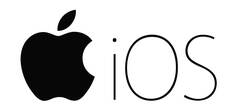Thanksgiving 1972
11/24/2022 12:25:45 PM
Rabbi Eisenman
| Author | |
| Date Added | |
| Automatically create summary | |
| Summary |

Today, Thanksgiving 2022, marks the Golden Jubilee of the famous Thanksgiving of 1972.
What? You never heard of the famous Thanksgiving of 1972?
Why, of course, you haven't. How could you?
So what was so special about a Thanksgiving which occurred half a century ago? If you have a day off (which you probably do), relax, sit back, pull up your screen so you are nice and cozy, and read on. My father, Z" L, was a photographer going from house to house to take pictures of newborns. Primarily he worked in high-crime, very low-income neighborhoods. I recall him telling me how often, after unpacking his equipment, he would plug in the lights. Very often, the lights did not go on. When he inquired from the residents, "Does this outlet work?" Without fanfare or particular embarrassment, they would say, "Our electricity was shut off because we did not pay the electric bill." Other times, as he attempted to place the cord in the outlet, an entire assemblage of cockroaches would quickly dash out. More often than not, the elevators in the "Projects" were not operative. My father had no choice but to schlep thirty pounds of equipment up ten or twelve, or even more flights of stairs. In early November of 1972, my father took a fall on one of the sullied, darkened staircases of the Projects while carrying his equipment and broke his tibia in multiple places. Needless to say, he was bedridden for six weeks.
At that time, no work meant no pay, and my father sadly informed my brother and me that he would no longer be able to give us our $1.25 weekly allowance. I went upstairs to my room and removed the $37.50 from my wallet, which I had saved up to purchase a new suit at "The Male Shop" on Ralph Ave. and Ave. J. They always had a sale around Thanksgiving where for $50, you got a blazer, a suit, and two pairs of socks for fifty dollars. I brought the money to my mother and told her, "Here, Mom, I want to help out." She replied, "Thank you, right now, we are still managing; however, depending on how long Dad is out of work, we may need the money." I recall my father lying on the couch, reading the Israeli newspaper, his foot elevated in a cast.
My mother worked as a teacher in the New York City public school system. My mother's parents had escaped Czarist Russia shortly after the infamous Kishinev pogrom of 1903, in which forty-nine Jews were murdered and over five hundred injured. Many were maimed for life. She was the youngest of three sisters, and she was born in January 1930. She was the only one of her sisters to attend college and eventually earned two Masters degrees. My mother was very deeply grateful to this country. Many of her relatives were killed in the Kishinev Pogram, and much more of the extended family would be decimated during the Holocaust. She attended Erasmus Hall High School. The school (closed in 1994 due to poor academic scores) was, back in the 1940s, a premier high school in Brooklyn. Erasmus Hall High School was a four-year public high school located at 925 Flatbush Avenue between Church and Snyder Avenues. At its prime, the school could accommodate 1,566 additional pupils. Among its alums are many famous Jews. The author Bernard Malamud attended, as did Barbra Streisand, who began her education at the Yeshiva of Brooklyn. My mother went on to study at Hunter College, part of the CUNY (City University of New York) system. Back then, its four-year colleges offered a high-quality, tuition-free education to the poor, the working class, and the immigrants of New York City. When some Ivy League universities, such as Yale University, discriminated against Jews, many Jewish academics and intellectuals studied and taught at CUNY. The City College of New York developed a reputation of being "the Harvard of the proletariat."
My mother, the youngest daughter of two Yiddish-speaking immigrants, had been blessed to attend college for free and become a professional teacher. Eventually, she had the Zechus to educate New York City's poorest students for decades. With her job, she could pay for yeshiva tuition for her two sons. Thanksgiving was when she felt she could express her Hokoras HaTov to her host country. It was the country that Rav Moshe Feinstein Zt" L referred to as the Medina of Chessed.
In my younger years, we would attend Thanksgiving dinner at the house of my Uncle Jerry and Aunt Rose. Yet, this Thanksgiving, we were homebound with my father laid up and the money very tight. At about three in the afternoon, my mother asked me to come with her for a ride. She did not like driving and only learned to drive much later. However, today she had no choice. We packed into the car and drove off to Meal Mart in Crown Heights. The floor of the butcher/take-out store was covered in sawdust. My mother asked for three turkey legs at 69 cents a pound. We arrived home, and my mother served us dinner consisting of three turkey legs and cooked peas and carrots.
As we ate, my mother said we must be thankful to Hashem for allowing us to live in such a special country. This country gave her an education for free. As an employee of the New York City Public School System, she and the entire family are provided with excellent health care. "Who knows how we could have afforded the hospital and doctor's bills from Dad's injury without the City's healthcare benefits?" She wondered aloud. "We must show gratitude to our host country and appreciate their welcoming us in their country and treating us like everyone else. My parents were almost killed for being Jews in Russia. Here, in America, even though only I work for the City, they pay me a salary and provide the entire family with free medical care. How can we not be grateful for this country of Chessed?
Having turkey reminds us that we must be grateful to our host country. Eating turkey connects us to America and reminds us that we must be thankful for living in a land of Chessed." I pointed out that there was no Chiyuv (halachik obligation) to eat turkey on the day. My mother looked at me and said, "I cannot argue with you about halacha, as you know much more than me. That's why I sent you to yeshiva. However, I do know gratitude and Hokoras Hatov are fundamental Jewish concepts. Serving turkey reminds me that despite our problems, we can never forget- as you told me Rav Moshe Feinstein said- to have gratitude and appreciation for America.
Ron, it was you who told me that Rav Moshe called America a "Malchus (a kingdom) of Chessed" (compassion); isn't that so?" (Rav Moshe Zt" L writes in Igros Moshe, Chelek Choshen Mishpat (2), Siman 29, "….The Malchus of Chessed (of this country, America), whose purpose is to do good to all of the inhabitants of the country….Certainly, all of the Roshei Yeshivos and principals and students appreciate all of the goodness of the Medina…")
"How can I not do something to show my appreciation for this country and our freedoms?" My mother innocently added, "Who knows? If we stop showing our Hokoras HaTov, maybe Hashem will remove His Brocha from us? After all, Hokoras HaTov to America, isn't it just an extension of the gratitude and Hokoras Hatov we must show Hashem? If we fail to heed Rav Moshe's teachings on how much gratitude we must have for this country, could Hashem consider us ingrates? Could that lead to -Chas V'Shalom- a day in the future when our educational/religious freedoms are threatened?"
I loved my mother very much. I miss her very much. Yet, only now, fifty years later, do I realize how prescient she was.
Happy Thanksgiving.
Tue, November 4 2025
13 Cheshvan 5786
Today's Calendar
| Daf Yomi - Rabbi Jacobowitz : 9:00pm |
| Daf Hashavua Chaburah - Rabbi Yehudah Kovacs : 9:15pm |
Friday Night
| Candle Lighting : 4:27pm |
Shabbos Day
| Hilchos Shabbos - Rabbi Eisenman : 8:15am |
| Bein Adam L'Chaveiro - Rabbi Eisenman : 11:15am |
| Daf Yomi - Rabbi Jacobowitz : 2:40pm |
| Massechta Taanis - Rabbi Eisenman : 3:15pm |
| Sixth Perek of Brachos - Rabbi Wiederblank : 3:15pm |
| Mesillas Yesharim w. Shalosh Seudos - Rabbi Eisenman : 4:55pm |
Upcoming Programs & Events
Nov 19 Hafrashash Challah Event 2025 Wednesday, Nov 19 8:00pm |
This week's Torah portion is Parshas Vayera
| Shabbos, Nov 8 |
Candle Lighting
| Friday, Nov 7, 4:27pm |
Shabbos Mevarchim
| Shabbos, Nov 15 |
Important Links
Zmanim
| Alos Hashachar | 5:07am |
| Earliest Tallis | 5:35am |
| Netz (Sunrise) | 6:30am |
| Latest Shema | 9:05am |
| Zman Tefillah | 9:57am |
| Chatzos (Midday) | 11:40am |
| Mincha Gedola | 12:06pm |
| Mincha Ketana | 2:40pm |
| Plag HaMincha | 3:45pm |
| Shkiah (Sunset) | 4:49pm |
| Tzais Hakochavim | 5:32pm |
| More >> | |
Privacy Settings | Privacy Policy | Member Terms
©2025 All rights reserved. Find out more about ShulCloud


